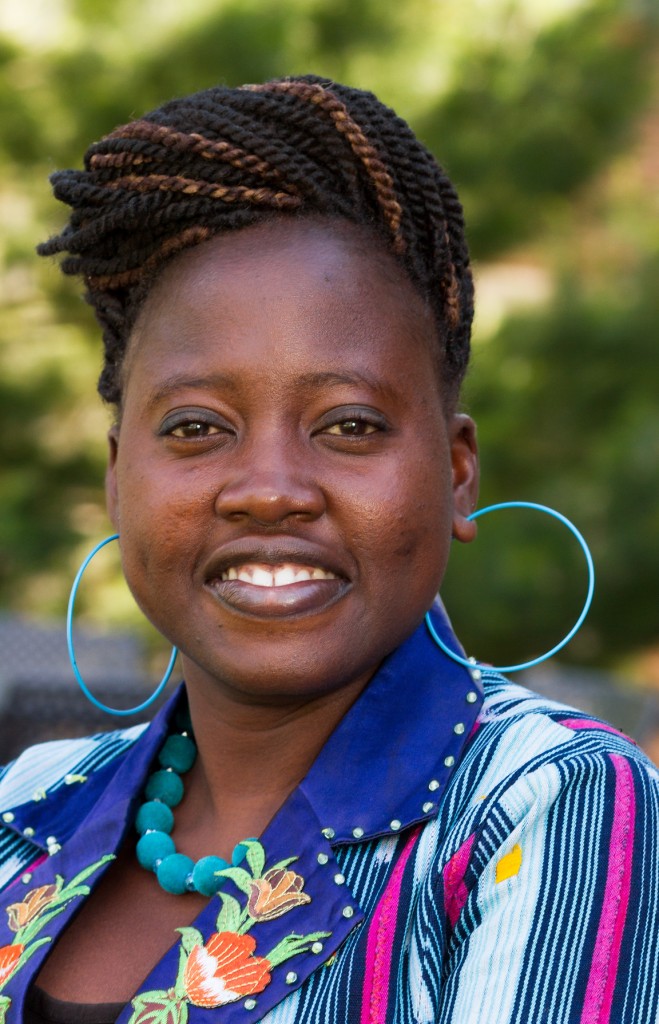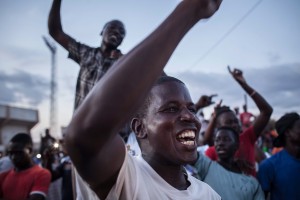 My name is Martine Nikiema. I am a citizen of Burkina Faso, which means “the land of upright people.” It is a landlocked country sandwiched between Ghana, Mali, Côte d’Ivoire, Togo, Niger, and Benin and is at the heart of the West African savannah.The purpose of this article is to amplify the voices of my fellow countrymen and women who are fighting for democracy and the rule of law. Six months ago, I was privileged to be one of the Mandela Washington Fellows and to participate in the 2015 Young African Leaders Initiative (YALI) representing my country. It was a real honor for me to be selected from a pool of over 30,000 continental applicants to travel to the United States and participate with other young leaders in YALI.
My name is Martine Nikiema. I am a citizen of Burkina Faso, which means “the land of upright people.” It is a landlocked country sandwiched between Ghana, Mali, Côte d’Ivoire, Togo, Niger, and Benin and is at the heart of the West African savannah.The purpose of this article is to amplify the voices of my fellow countrymen and women who are fighting for democracy and the rule of law. Six months ago, I was privileged to be one of the Mandela Washington Fellows and to participate in the 2015 Young African Leaders Initiative (YALI) representing my country. It was a real honor for me to be selected from a pool of over 30,000 continental applicants to travel to the United States and participate with other young leaders in YALI.
In the weeks following the announcement of the Mandela Washington Fellows, I wondered why I had been selected, since I never saw myself as a charismatic leader.
Last June I left my country to begin a new chapter in my life that would include big challenges, each of which I was determined to see as an opportunity. On the plane, I looked in tears at my country and our people. The biggest question that sprang to my mind was how and when my country would see the needed social changes it craves: food for children, better education and justice for all, human rights, and gender equality. I am optimistic because my people are hardworking and brave, and because I believe in a better future. Every day my people do their best to to improve their living conditions. But it takes good leadership to make these changes happen. How can they reach these objectives if there are not good leaders to guide them?
I spent my first six weeks at Dartmouth College in Hanover, New Hampshire, learning business and leadership skills. That period made me look back on my past life and what I have done in my community, fighting for better education by helping children in rural areas get light through solar energy. After six weeks, I finally understood that leadership does not necessarily mean taking huge action, but rather taking any action that changes the lives of people for the better. And good leadership is a determining factor in the process. A leader is a team player and a good listener who gives people a chance to speak and hears their voices. He or she is able to inspire others and guide them to continue their journey with more hope for success. I started at that moment to believe in myself, but I also realized that I still have a long journey to be an effective leader. My main objectives became:
-
- Empowering hopeless youth who no longer believe in justice.
- Inspiring females to continue their education in order be a change-maker in their community.
- Getting donations and support to provide solar lamps to children in remote areas.

Citizens of Burkina Faso protest against the recent coup in Ouagadougou. (© AP Images)
Upon completing my course at Dartmouth, I travelled to Baltimore to participate in an internship with Bithgroup Technologies, a renewable-energy developer. During my six- week internship, I continued working on my objectives. I was in a hurry to return home and share my experience with my family, friends, and community, and to start my dream of being a good leader.
On September 16, 2015, less than a month before elections, a military coup changed the situation in my country. The president, the prime minister, and two other ministers were arrested by the presidential guard (RSP). The citizens of Burkina Faso protested to denounce this anti-democratic and terrorist act — fighting by using their voices for peace, human rights, and democracy.
Their relentless resistance against the oppressor finally won them the much-needed victory they longed for for over half a century. Despite the death of 15 people and the wounding of 200 more, this victory is a watershed in the democratic process of my country. It will help heal many years of military brutality and impunity, as well as gross abuses of human rights. My country has regained its sovereignty and dignity. Today I am proud to be a citizen of Burkina Faso. I am even tempted to call it — like the United States — “the land of the free and the home of the brave.”
This victory is obviously not to the advantage of some regional powers and leaders who continue to torture their people. The military in most African countries do not serve their people but are at the service of the elites. The army in Burkina Faso gave an example of patriotism when they fought back to protect their citizens against the presidential guards. They will go down in history as paragons of an authentic national army on the African soil.
I am grateful for the opportunity I was given by the U.S. government to learn skills of leadership and be part of the solution for the transformation of African societies and particularly of my home and beloved country, Burkina Faso. I know it is incumbent upon us, the next generation, to be an example for all countries facing challenges. Our future depends on us, we the people; our destiny is in our hands, and we cannot allow anyone to destroy it.
I can use my voice to educate, inform, and defend our interests and to show the world the true meaning of democracy. Each population has the right to choose their leaders through legitimate elections. I raise my voice to say to nations that believe in democracy and the rights of individuals and countries to determine their own destiny: This is the time to take action. Time for more freedom, more democracy, and more justice. We, the people of Burkina Faso, are ready to face anything to reach our goals. I raise my voice to ask you to stand with us for justice.
The views and opinions expressed here belong to the author and do not necessarily reflect those of the YALI Network or the U.S. government.

